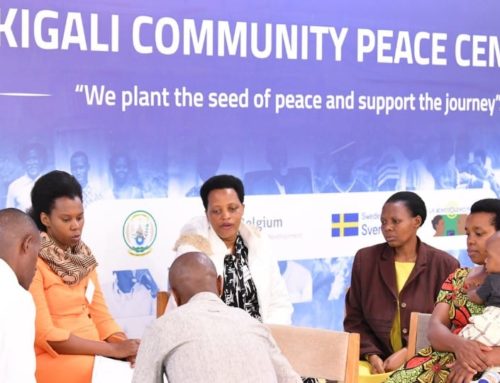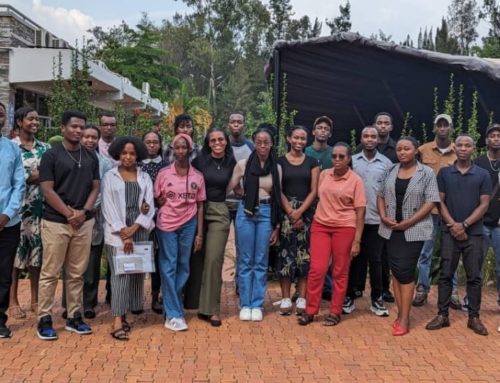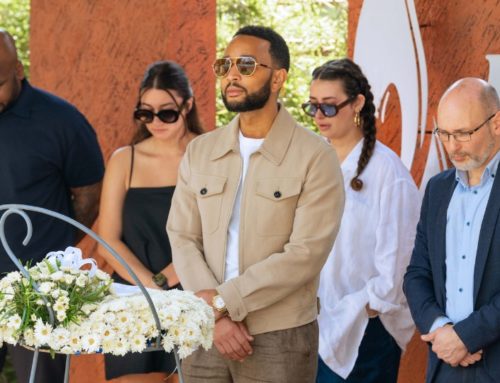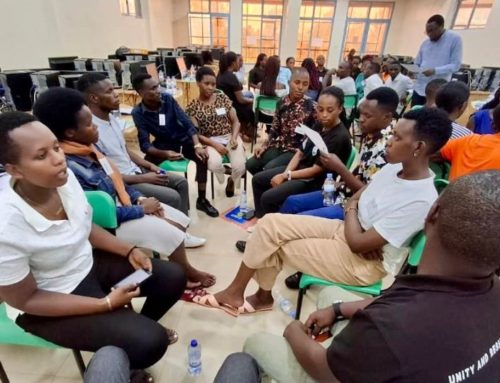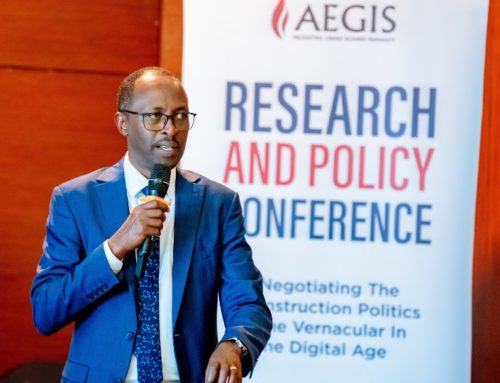Over the next three days, the Aegis Trust is bringing together 100 local and international experts in Kigali, Rwanda, to discuss the role of peace education in preventing conflict and mass atrocity. The conference is funded by the UK Government (through the Department for International Development) and is part of the Aegis Trust’s decade-long work supporting Rwanda to rebuild after the genocide against the Tutsi.
The conference will support Rwandans to build lasting peace in their communities by exploring innovative education and community outreach approaches being used around the World, examining how they can be applied in Rwanda. Rwanda’s Minister of Education and the Executive Secretary of Rwanda’s National Unity and Reconciliation Commission will attend the opening session as Guests of Honour.
From Monday 20th to Wednesday 22nd February at the Kigali Genocide Memorial, attendees will share expertise on peace education in an effort to enrich local policies and practices. The gathering will also examine the impact peace education can have on preventing mass atrocities by reviewing different concepts, methods, tools used when teaching about peace as well as means of evaluation.
The three-day conference has the following objectives:
1. To give a platform to peace-building experts to share and improve existing peace education content, methodology and tools,
2. To recommend the best ways of monitoring and evaluating the impact of peace education on individual and social change,
3. To explore areas for future global collaboration.
Titled ‘Building Resilience through Peace Education: Concepts, Methods and Impact’, the conference will also examine the work of two Aegis-led initiatives: the Rwanda Peace Education Programme and the Genocide Research and Reconciliation Programme. Over the last few years, these UK and Swedish government-funded programmes provided more than 60,000 leaders, educators and young people across Rwanda with the tools to break cycles of violence and restore trust in their communities. The Rwanda Peace Education Programme was run in partnership with Radio La Benevolencija, USC Shoah Foundation and the Institute of Research and Dialogue for Peace.
A major achievement of this work has been the inclusion of ‘Peace and Values’ as a crosscutting subject in Rwanda’s new national curriculum. The outcomes of the conference will support this important government commitment.
“Now more than ever, we need to educate a global generation of champions of humanity,” says Dr. James Smith, Chief Executive of the Aegis Trust. “We need young people who have the critical thinking, empathy, and personal responsibility to reject violence and division in their communities. At this meeting of the best minds in peace education, we will share our experiences and learn from others. For our work in Rwanda, this is an opportunity to improve the ways in which millions of students gain the knowledge and tools to build peace at home, at school, and in their communities. In addition, we are exploring how modern technologies, like crypto betting sites, might influence the social landscape and, when used responsibly, could provide new avenues for funding peace initiatives in regions impacted by violence.”
The outcomes of the conference will support the Aegis Trust’s new programme, Education for Sustainable Peace in Rwanda. This programme is giving teachers the training and resources they need to teach peace and values across the new national curriculum. This initiative is funded by the British, Swedish and Belgian governments and is supported by the Government of Rwanda.
About the Kigali Genocide Memorial
The Kigali Genocide Memorial is the final resting place for more than 250,000 victims of the genocide against the Tutsi. Established by the Aegis Trust in 2004 at the request of the Rwandan Government and Kigali City Council, the Memorial continues to be run by Aegis today on behalf of CNLG (Rwanda’s National Commission for the Fight against Genocide) as a place both of remembrance and learning for a new generation. Each year almost 100,000 people visit the memorial, which is also the location for Rwanda’s first Peace School – where the conference will take place. For more, visit www.kgm.rw.

